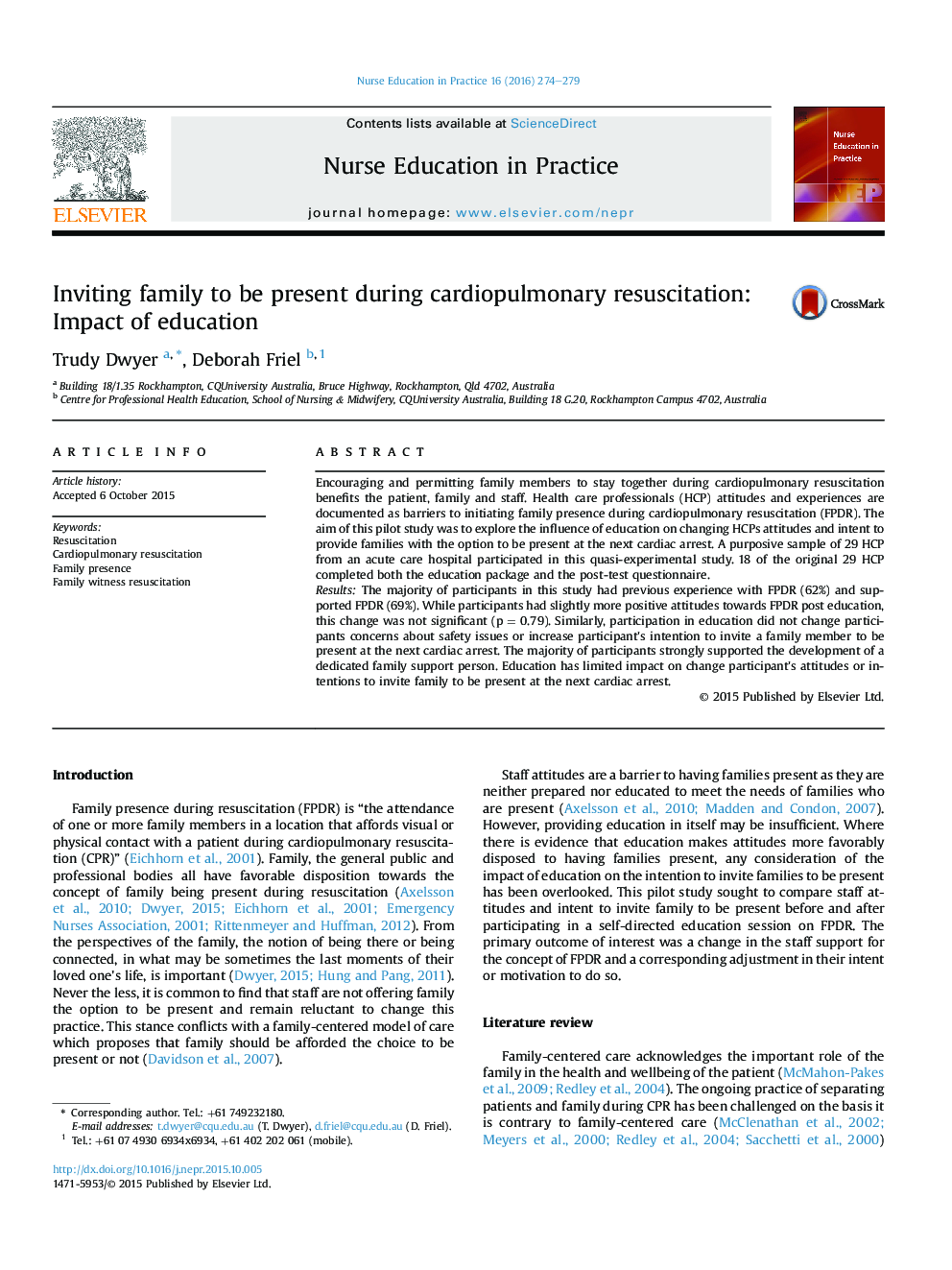| Article ID | Journal | Published Year | Pages | File Type |
|---|---|---|---|---|
| 366838 | Nurse Education in Practice | 2016 | 6 Pages |
Encouraging and permitting family members to stay together during cardiopulmonary resuscitation benefits the patient, family and staff. Health care professionals (HCP) attitudes and experiences are documented as barriers to initiating family presence during cardiopulmonary resuscitation (FPDR). The aim of this pilot study was to explore the influence of education on changing HCPs attitudes and intent to provide families with the option to be present at the next cardiac arrest. A purposive sample of 29 HCP from an acute care hospital participated in this quasi-experimental study. 18 of the original 29 HCP completed both the education package and the post-test questionnaire.ResultsThe majority of participants in this study had previous experience with FPDR (62%) and supported FPDR (69%). While participants had slightly more positive attitudes towards FPDR post education, this change was not significant (p = 0.79). Similarly, participation in education did not change participants concerns about safety issues or increase participant's intention to invite a family member to be present at the next cardiac arrest. The majority of participants strongly supported the development of a dedicated family support person. Education has limited impact on change participant's attitudes or intentions to invite family to be present at the next cardiac arrest.
